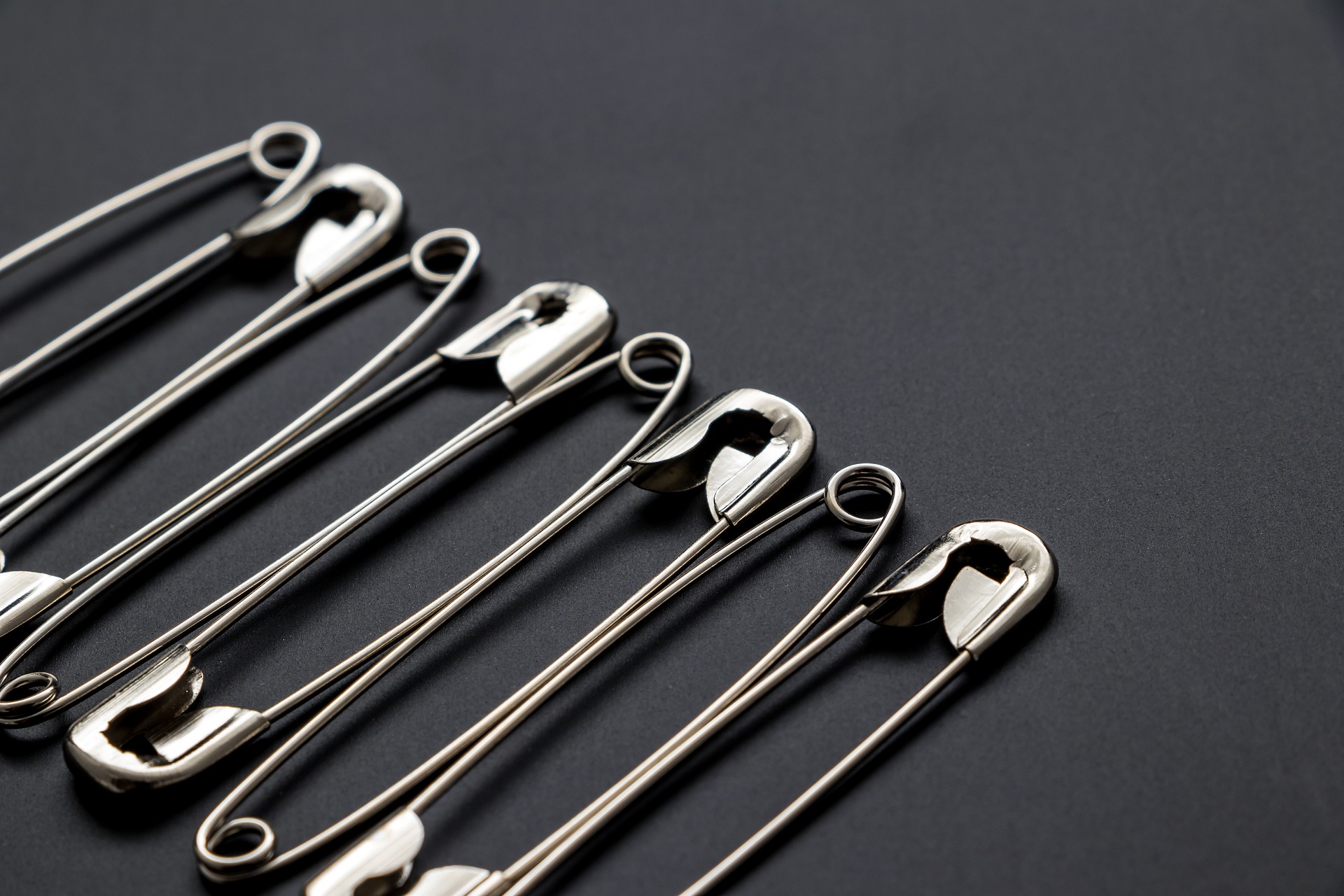Safety pins. They’ve been around for more than 150 years and have seemingly endless uses, not the least of which is the reason we chiropractors like to use them.
Sounds odd, I agree. To be more accurate, most chiropractors of today don’t use them at all, which is a shame.
No, it’s not an old school style of adjusting — unless adjusting “between the ears” counts. Rather from as far back as 1927, chiropractors of yesteryear have used safety pins as a way of explaining what they did.
Attracted to its simple design and function, chiropractors resonate with the safety pin’s representation of “connection.” Simply put, when closed, it is working. It is “connected.”
Imagine the top portion of the safety pin is the brain, and the bottom is the body. The brain sends a message down the straight portion of the pin (i.e. the nerve) to the body, and the body sends the message back up the other side of the pin to the brain. It’s a basic feedback loop, a circuit. But when a vertebra moves out of alignment and puts pressure on a nerve, this transmission is interfered with, and the safety pin pops open. It becomes disconnected.
With this “disconnected” brain-body-connection, all sorts of effects, otherwise known as symptoms, line up in the queue: pain, numbness, tingling, burning, shooting, stabbing, etc. Our world loves to treat effects. It’s what we know. We have supermarket aisles and corner stores dedicated to nothing but treating effects.
And while we chiropractors (because we’re human too) have compassion for effects, ultimately we don’t care. Our prime objective is not treating an effect but caring for a cause. Our job, each and every time, is to close the safety pin, period. Our job is to reestablish connection. When connected, the self-healing, self-regulating capacities of the body have a chance to function the way they are supposed to.
It’s really quite simple. Nothing works at its best when disconnected. True, it may survive, but it will not thrive. When connected, the body, however, has a chance. Add design-honoring lifestyle choices and Health Care Reform takes on new meaning.
Why have we — and the modern day chiropractor is certainly not immune to this — made health care so complicated? When was it that we thought more research, more evidence, more technology, more gadgetry, more insurance, more this, more that… equated to higher levels of health in our society? Truth is, it hasn’t. The truth is, it never will.

__________
Contributed by Dr. Thomas R. Lamar, DC.
[originally published in KCN, February 2014; republished from Dr. Lamar’s spinalcolumnblog.com]
__________





